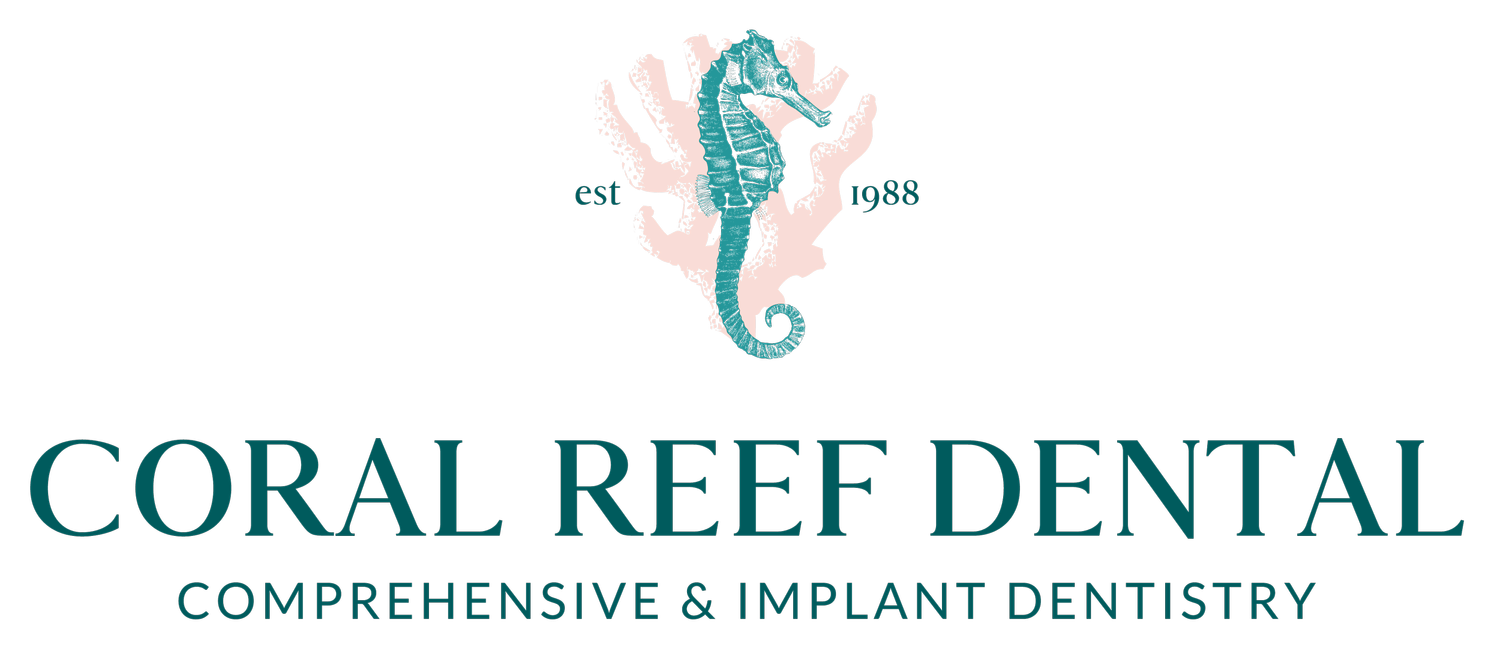Dental Implants vs Dentures: How To Choose
Losing your teeth can cause more than a blow to your confidence — it can lead to greater issues like difficulty eating and even bone loss. Fortunately, dental implants and dentures can address some or all of these problems. To make the best decision for your oral health, it’s important to understand the differences between dental implants vs dentures. Join us as we compare the benefits and risks of these two solutions to tooth loss.
What is the procedure for dental implants vs dentures?
Whether you choose dental implants or dentures, these artificial teeth require certain procedures. Here’s what you can expect from each process:
What to expect from dental implants
Dental implants are a non-removable solution for missing teeth, and they require a surgical procedure. Your dentist or oral surgeon will implant a metal post into your jawbone, which your artificial tooth or crown will screw onto. This factor is one that many patients consider with these alternatives to dentures.
What to expect with dentures
Dentures are a non-invasive alternative to implants that some patients find more accessible. Your dental specialist will take an impression of your teeth and gums and customize a prosthesis to fit your mouth. Depending on the health of your existing teeth and how many are missing, you can opt for partial dentures or a full set.
Differences between implants and dentures
While both dentures and implants serve the same purpose, there are some significant differences to consider before making a decision. Here are a few ways these two options vary:
Cost
Removable dentures are typically the cheaper option since they don’t require surgery. That said, implant-supported dentures are often considered a mid-range alternative. Some patients, such as those missing several consecutive teeth, may opt for an implant-supported dental bridge that requires fewer posts.
Upkeep and maintenance
Dental implants are considered a non-removable solution for tooth loss. After a successful surgery, your jawbone will fuse to the posts and hold them in place. However, you may need to replace the crowns every 10 to 15 years. It’s essential to maintain optimal oral hygiene to avoid bacterial infections that can compromise the health of your gums and bones.
On the other hand, you must remove and properly care for your dentures regularly to keep them in peak condition. Even with the best care possible, you’ll likely need to replace them every five to 10 years.
Possible complications
Osteoporosis is common in older adults, and when you lose a tooth, the surrounding gums and bones begin to recess. However, one of the great things about dental implants is that they help prevent bone loss by mimicking your natural tooth.
In contrast, dentures don’t support the underlying structure of your jaw. If you opt for a denture or fixed bridge to replace your missing tooth, you might feel the effects down the line.
Of course, implants come with their own set of risks. For example, it’s possible to suffer from nerve damage following surgery. In other cases, poor oral hygiene can cause bacterial infections.
Choosing dental implants vs dentures
When deciding between dentures and dental implants, you’ll want to think about the complete picture. These are some of the considerations to keep in mind:
Age
Younger patients may find dental implants more aligned with their lifestyle than dentures, as they require less upkeep and fewer replacements than dentures. This may be especially true of people who are only missing one or two teeth. It’s also important to remember the long-term effects of missing teeth.
Budget
Of course, the cost of artificial teeth is also a major factor for many. In some cases, patients can afford to replace one tooth with an implant but not a complete set. The exact prices will depend on several elements, including the number of missing teeth and your location. However, in many instances, a single implant can cost as much as a full set of dentures. This is why many patients opt for dentures after tooth extraction instead.
Bone health
Your bone health will also determine whether or not implants are possible. While some folks with existing bone loss can successfully receive implants after a grafting procedure, this may not be an option for others.
Oral hygiene habits
We all like to think that the best versions of ourselves are waiting for us in the future, but it’s important to be realistic about your expectations. Dentures might be a safer bet if you have a history of neglecting your dental health. After all, dental implants are expensive and require optimal care.
Before taking the plunge with a surgical solution, be honest with yourself and your dentist about your habits. And remember, they can probably already tell by the state of your existing teeth.
Let Coral Reef Dental help you find the best choice!
Whether you’re considering a full set of dental implants or opting for temporary partials, the experts at Coral Reef Dental are here to help! We can guide you through the process of choosing the right solution and then support you through your journey to false teeth.
Contact us today to learn more about your options!


